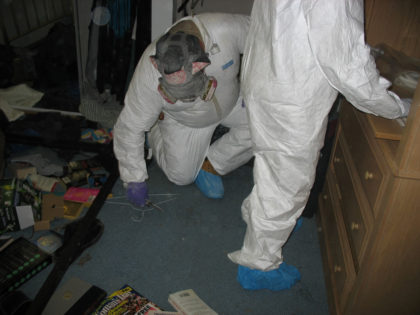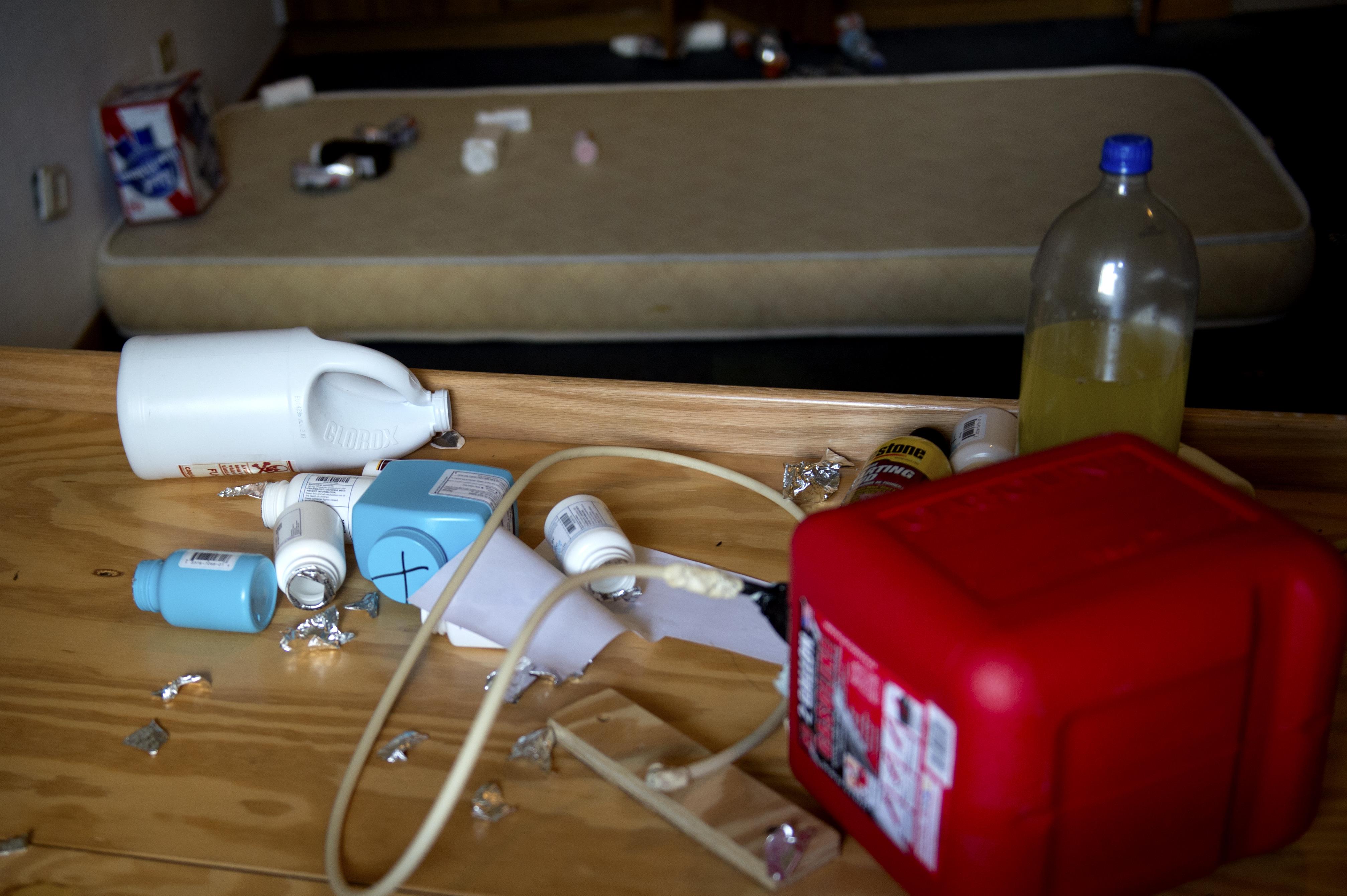Recently, I had a customer call me to consult on a purchase she was getting ready to make. She found a home that was a steal and was super excited! Every sounded great until she mentioned the fact that the home was possibly a meth lab in the past. Wait, what? Yes, this is a problem for resale and as an investor.
Every year meth labs are busted and closed down but many home meth labs go unbeknown. These homes eventually get sold to unsuspecting buyers.
The problem is that these home’s surfaces, insulation and carpeting may be steeped in poisonous substances. These contaminates can make home owners sick over time.
When someone sells a home they are asked to fill out a seller’s disclosure form. In it there are two places that address possible issues. One section will ask if you know if the premise was used to manufacture methamphetamines. The other area will ask if the seller knows of any condition that will affect the health and safety of the individual. The homeowner is suppose to tell you but if they are the ones cooking the meth, it’s very unlikely they will disclose this info.
If the home has been foreclosed and it’s being sold by a bank, it’s also unlikely that the buyer will know if the home was being used to produce meth.
Beware of cheap foreclosed properties, which are usually sold “as is”. We can assume that persons’ producing meth are more likely to lose, trash and abandon their home. In fact, they might not own it at all. It’s likely they are renting or squatting in an abandoned home. Banks can resale the home and landlords can easily rent the property without you knowing.
There are a few signs you can look for, assuming the home has not been cleaned out. Look for the following:
- Old bottles of acetone, muriatic acid, brake cleaner, drain cleaner, iodine, paint thinner, phosphorus laying around.
- Rubber gloved, tubing, dust masks, propane tanks, coolers and camp stoves.
- Yellow discoloration on walls, drains, sinks and showers.
- Blue discoloration on valves of propane tanks and fire extinguishers.
- Fire detectors that are removed–or taped off.
- Burning in your eyes, itchy throat, a metallic taste in your mouth, or breathing problems when in the home.
- Strong odors that smell similar to materials often found in a garage, such as solvent and paint thinner, or odors of cat urine or ammonia.
When it doubt or just to be proactive you can purchase a test kit for about $50 or you can hire a professional to do the testing for significantly more. You can also check with local police to see if the home was ever linked to drug arrests or complaints. Talk to the neighbors, most will be more than happy to tell you what they have seen and heard.
Something to consider: smoking meth in a home might also leave enough residue to cause health issues; it’s not just producing meth. It might be prudent to test before renting a home/apartment, buying vehicles, home and/or commercial buildings.
It’s best to be proactive because once you find out that the home is contaminated the clean up cost can easily run $10,000+.
To make matters worse there doesn’t seem to be a whole lot of concrete information about clean up and testing. The EPA does provide clean up guidelines but they are listed as “voluntary” clean up guidelines. In doing research, I found that the testing and clean up industry is not regulated and everyone seems to do their own thing.
If you find yourself in this situation do your research and see what’s best for you. Here are a few more sources:
There is a database where you can search for address. Keep in mind these are the meth labs that have been identified. The issue is mainly with those that haven’t been identified.
National Clandestine Laboratory Register Data
Sources: CNN Money, Realtor.com, NPR







